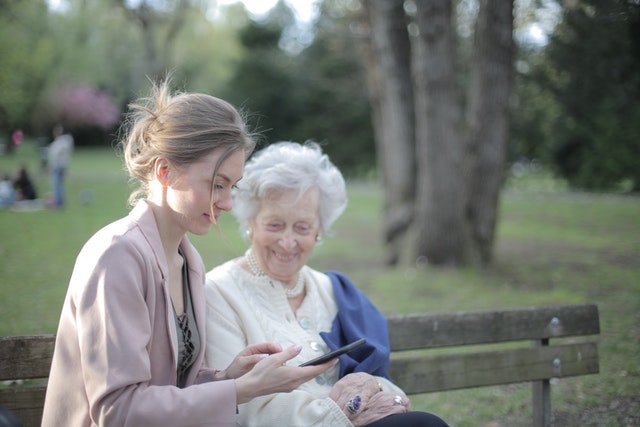
Communicating with Someone with Dementia in the Orlando, Florida Area
- April 13, 2022
- ontarget
- Elder Law
- 0 Comments
There was an interesting article in the Spring 2022 Fisher Center for Alzheimer’s Research Foundation Magazine on preserving memory written by Cindy Kuzma, titled “CLEAR Communication.”
Communication is a two-way street. However, when one person has Alzheimer’s Disease or dementia, you both may have to take a slightly different route. All humans want to understand one another and be understood, and brain changes linked to Alzheimer’s Disease and other dementia may affect the way your loved ones communicate. Kuzma states that this makes the typical give-and-take of conversation become more challenging.
Positive and Compassionate Communication
By making some shifts in your speech patterns — and incorporating forms of nonverbal communication — Kuzma says you can continue the communication and improve your relationship with your loved one. Kuzma goes on to explain how to do that. She says to start with a good attitude and positive body language. You can also smile and convey warmth through your facial expressions and use a calm, pleasant, and respectful tone. When appropriate, Kuzma recommends reinforcing your message with physical touch.
Limiting Distractions
According to the article, one important step for improving communication is to limit distractions. You can do this by turning off the TV or radio and moving to a quieter room. Kuzma also says to catch their attention before you speak. You can do this by addressing them by name and introducing yourself and how you are related to them.
Being Considerate of Memory Gaps
Kuzma says you need to “remind with kindness.” She said not to say things like “Don’t you remember?” or “What do you mean, who am I?” She also finds it helpful to speak slowly and simply, getting straight to the point in short sentences. Embracing silence is also important. You do not always have to talk to share time. Kuzma says you need to build in periods of quiet where you and your loved one are simply together.
Here are other pieces of advice Kuzma has for those whose loved ones have dementia or Alzheimer’s disease:
- Ask one straightforward question at a time.
- Create space. Allow plenty of time for the person to understand and respond.
- Avoid teaching or preaching.
- Listen beyond words. Watch out for grimacing, clutching a body part, or growing angry.
- Stay positive!
- Make a joke.
- Revisit the distant past.
- Step away if you must.
- Do not correct; redirect.
Hopefully, these interesting points from the author will improve your communication with your loved one with Alzheimer’s Disease or dementia. If you have more questions regarding a Marital and Family Law matter, you may call Ann Marie Giordano Gilden at Ann Marie Giordano Gilden, P.A. at 407-732-7620 and set an initial consultation.
This article is for informational purposes only and does not form an attorney client privilege.
